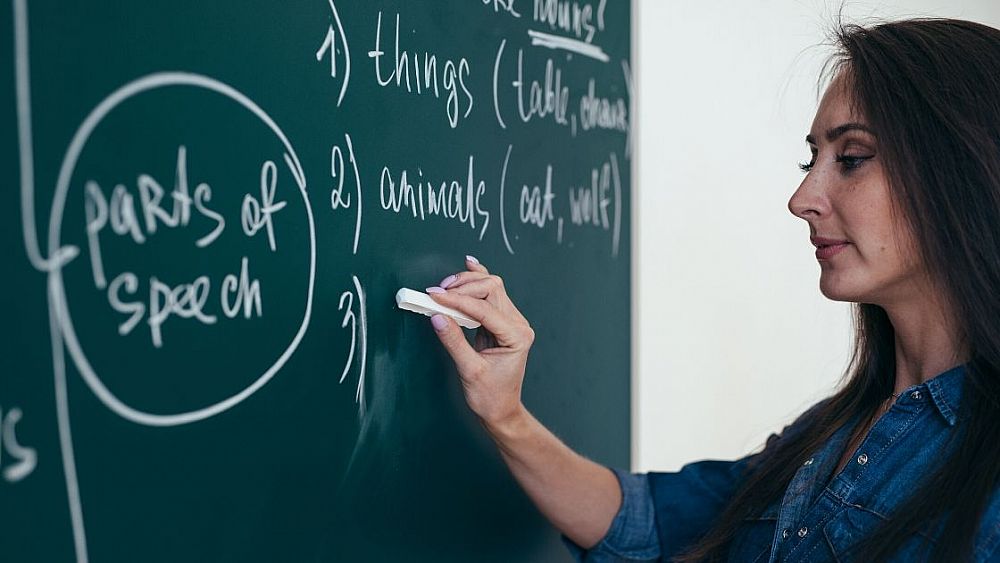Why Learning Grammar is Important and What are Students’ Common Mistakes?

Grammar is an essential part of English. However, to an EFL student, learning grammar can be challenging. Although there are a lot of rules and exceptions, Grammar helps EFL students correct their mistakes and improve their receptive and productive skills.
Table of Contents
Do you want to teach English abroad? Take a TEFL course!
This post was written by our TEFL certification graduate Johnay G. Please note that this blog post might not necessarily represent the beliefs or opinions of ITTT.
Rules and Exceptions
Learning Grammar is important because EFL students commonly make mistakes in the rules and exceptions of English. EFL students commonly make mistakes with the use of articles, which are determiners. For example, an EFL student might write the sentence, "Class will be over in an hour.", in which the use of the indefinite article "a" is incorrect. Since the noun "hour" starts with the consonant "h", the rule is to use the indefinite article "a"; however, the consonant "h" is silent and followed by the sound of the vowel "o", meaning "an" is the correct article. In this case, EFL students will improve their writing skills by visually viewing the mistakes in their sentences, as well as improve their listening skills by hearing the vowel and consonant sounds of the nouns following the articles.
Also Read: How to Research, Develop, and Implement Materials in the ESL/EFL Classroom
Phrasal Verbs
Another common mistake EFL students make is with the use of phrasal verbs. For instance, in the sentence, "Every morning, I get up, take off my pajamas, put on my clothes and set off to school.", in which EFL learners may be confused with the idea of why you "get up" rather than "stand up", and why you "put on" clothes but not "put off" clothes. In this case, EFL learners will improve their writing skills by learning which phrasal verbs are separable (put on) and inseparable (get up), as well as improve their reading skills by understanding the meaning of phrasal verbs such as "get up" meaning "to leave bed".
Auxiliary Verbs
EFL students also make mistakes with the use of auxiliary verbs, which help verbs form a tense and emphasize expression. For instance, an EFL student might write the sentence "John having a good day today.", which is missing the auxiliary verb "is". Since the main verb "having" contains the present participle "ing", it makes the main verb continuous, and since time is specified as "today", it means the sentence is in the present continuous tense. In this case, EFL students will improve their writing in present, past, and future tenses, as well as improve their reading skills by comprehending which verbs are the main verb (having) and auxiliary verb (is).
Also Read: English Around The World
Future Tenses
Additionally, EFL students make mistakes with the use of Future tenses, which indicates actions in the future. For example, an EFL student might write the sentence, "At 2 pm tomorrow, I will be doing the laundry for thirty minutes.", which is missing the auxiliary verb "have". Since the main verb "doing" contains the present participle "ing", the second auxiliary verb "been" contains the past participle "en", and the specified time is "At 2 pm tomorrow", which means the sentence is in the Future Perfect Continuous tense. In this case, EFL students will improve their writing in forming Future tenses, as well as improve their reading skills by understanding which verbs are the main verb (doing) an auxiliary verb (have and been).
Do you want to teach English abroad? Take a TEFL course!
In conclusion, Articles are important because it helps EFL students specify nouns. Phrasal verbs are important because it helps EFL students with reading comprehension. Auxiliary verbs are important because it helps EFL students to express what they are doing in the past, present, and future tenses. Even though it is a rare tense that is not used often, Future tense is important because it helps EFL students express what they will be doing in the future. Overall, learning grammar is important in EFL because students can visually view the mistakes in their sentences and then know how to improve their receptive and productive skills.
Apply now & get certified to teach english abroad!
Speak with an ITTT advisor today to put together your personal plan for teaching English abroad!
Send us an email or call us toll-free at 1-800-490-0531 to speak with an ITTT advisor today.
Related Articles:
- Online or In-Class - Which TEFL Course Should You Take?
- The Truth About TEFL for Non-Native English Speaking Teachers
- How to Save Money While Teaching English Abroad?
- Two Traveling Teachers Share What It's Like Teaching English Abroad as a Couple
- The 12 Most Affordable Countries For Teaching English Abroad
- The Best Countries to Teach ESL When You're 50+



